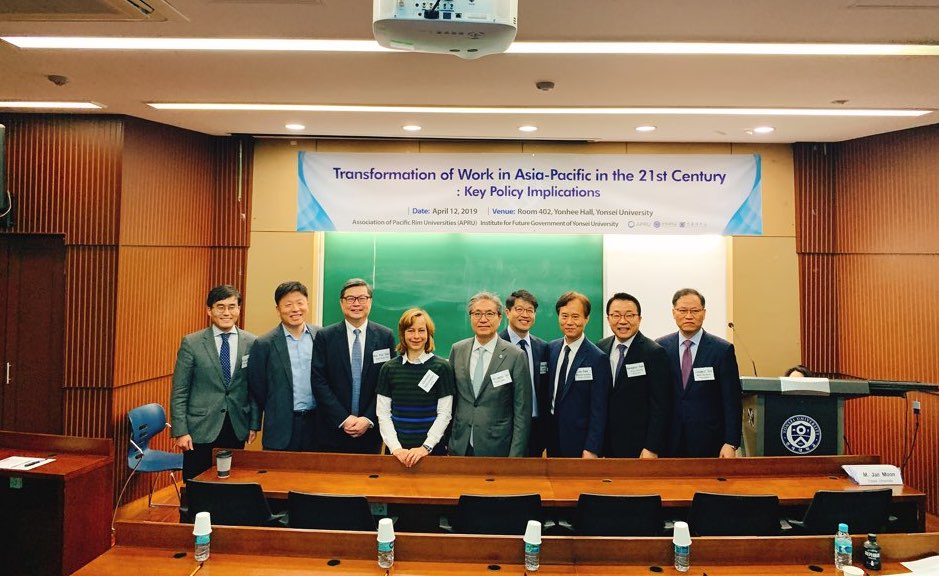Digital automation is one of the most profound changes that the world has been experiencing recently across sectors. It transforms the nature of work and relationship between humans and machines both in the private and public sectors. The transformation of work will unfold both lights and shades over the economy, society, and government.
The Institute for Future Government of Yonsei University, in partnership with Seoul National University and APRU, hold a forum, Transformation of Work in Asia-Pacific in the 21 Century: Key Policy Implications, on April 12. The primary purposes of this forum are to share the results of a joint project with six APRU member universities and a partnering institute in the Asia-Pacific region, and to engage in high-level discussions on its policy implications for Korea on education, competition policy, and business regulation.
Download the report here.

